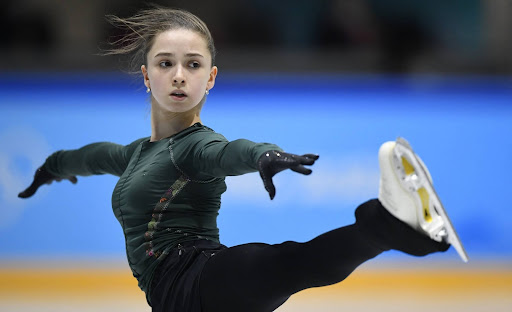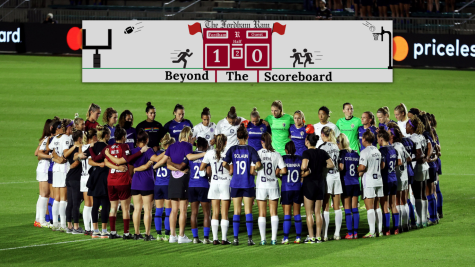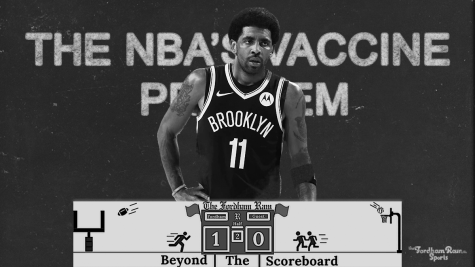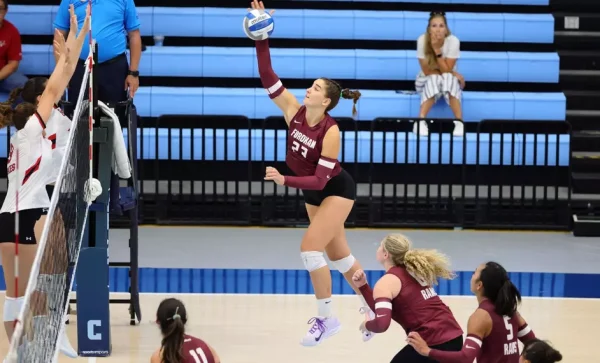Beyond the Scoreboard: Doping at the Olympics

Once again, a doping scandal takes hold of the Olympics. (Courtesy of Twitter)
This year’s Winter Olympics in Beijing once again dealt with the issue of athletes using illegal substances in competition. Throughout many Olympics, there have been cases of certain athletes using substances banned by the World Anti-Doping Agency (WADA); however, no country seems to have as many issues with this as Russia does.
Now competing under the title “Russian Olympic Committee” (ROC), the name serves as a reminder of the tainted Olympic history Russian athletes have caused. As punishment for doping during the 2018 Winter Olympics in Pyeongchang, Russia’s flag and namesake was banned from competing in Olympic games for two years.
This year, the women’s ice skating competition involved doping, with 15-year-old Kamila Valieva testing positive for a heart medication called trimetazidine in a sample taken prior to the Olympics. Trimetazidine, a drug believed to increase endurance, is on the banned substances list. The news of this positive test result did not come until after Valieva helped the ROC win the team skating event. According to Valieva’s lawyers, the drug was thought to enter her system via cross-contamination from her grandfather, who is on the medication.
Due to the fact that she is a minor, the Court of Arbitration for Sports at the Olympics said Valieva was allowed to continue performing in the Olympics, but if she won an event she would not be given a medal. As a result, the team skating medal ceremony is at a halt, with the United States having originally taken silver behind the ROC.
Valieva went on to compete in the second half of the free skate event on Thursday, performing below-average. Falling out of numerous turns, she failed to make the podium, eliminating the chance for a potential cancellation of a podium ceremony.
In tears after her performance, Valieva became one of the most talked about subjects during the winter games, calling into question the Court of Arbitration for Sport’s policy for doping. While her age played a large factor in the ultimate decision, many instances of drug usage in the Olympics have been regarded much more severely.
In 2021, 21-year-old American track and field star Sha’carri Richardson was handed a one-month suspension from racing after testing positive for THC. The one-month suspension set Richardson back, making her ineligible for the 100m race, and thus made her miss out on attending the 2020 Summer Olympics. The issue in comparing the two situations is that the CAS panel did not judge Richardson’s case, rather it was the U.S. Anti-Doping Agency (USADA).
While USADA is known for being strict when it comes to illegal substance usage and doping, the Russian counterpart, RUSADA, looks the other way in many drug-related cases. Their lack of oversight gained international attention, ultimately being dismantled in 2015. Without a clear set of rules for Russian athletes, doping is still running rampant among their ranks.
The real issue when it comes to doping is the lack of clear rules and regulations for athletes. There is no universal rule when it comes to banning athletes or barring them from competition. This year’s instance took a dramatic turn due to Valieva’s young age. The age range for women’s ice skating has dramatically decreased over the past few years and, with questions of doping clouding their futures, their mental health is also at risk.
The coach for many of the young Russian ice skaters is Eteri Tutberidze, who has pumped out many talented ice skaters for the past eight years. However, her teaching style has been widely criticized, with reports exposing her verbal and physical abuse. “The Eteri Girls,” as the skaters are called, are trained to be champions and tend to reach their retirement age at just 16 or 17-years-old.
The CAS panel, when addressing the case of Valieva, cited her age being a major factor for her ability to continue competing in the Olympics. “The panel considered that preventing the athlete to compete at the Olympic Games would cause her irreparable harm in the circumstances,” CAS Director General Matthieu Reeb said in a statement, according to the AP. It is incredibly difficult then to watch the CAS panel turn a blind eye when these young athletes are being pushed to the edge and pumped full of puberty blockers to keep their bodies young. The “irreparable harm” has already been done and this will not be the last time a young Russian athlete will dare to dope.

Maddie Bimonte is a senior from Raleigh, N. C. majoring in journalism and minoring in political science. She first joined the Ram writing for the sports...












































































































































































































